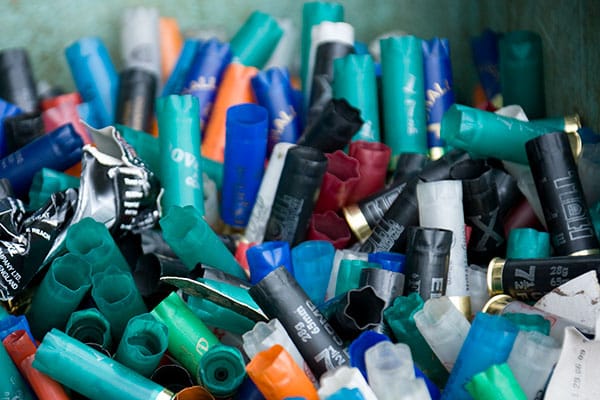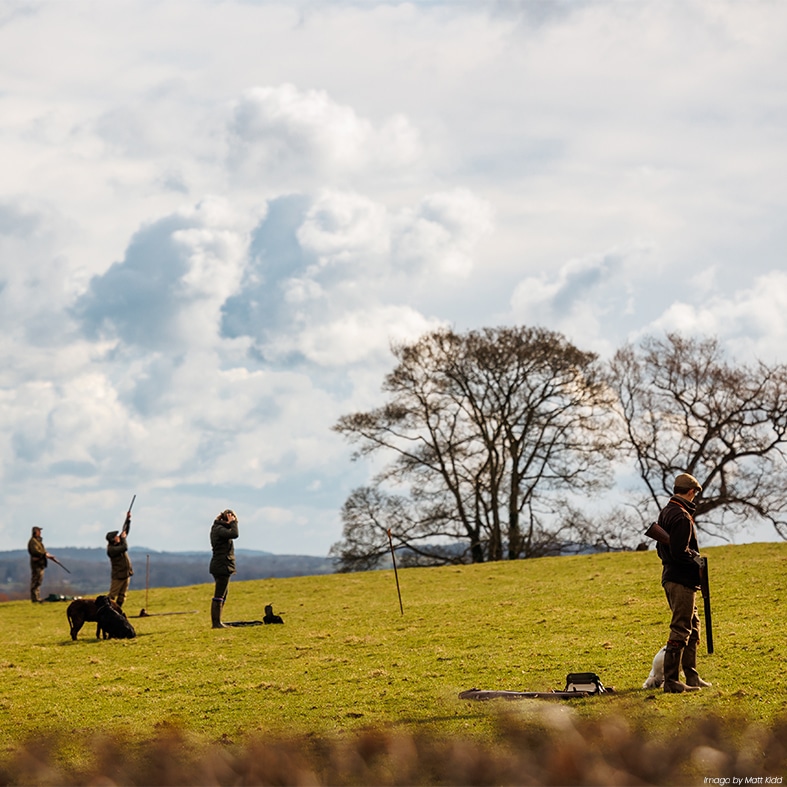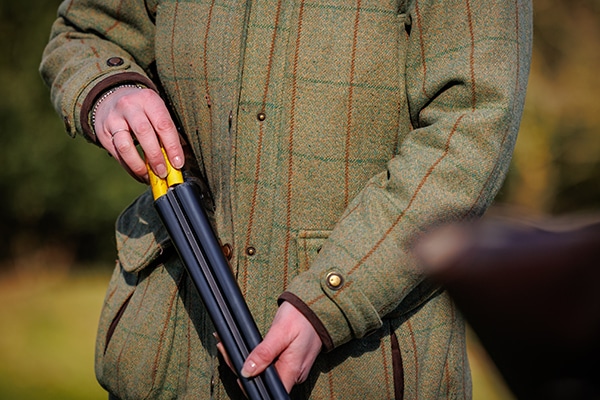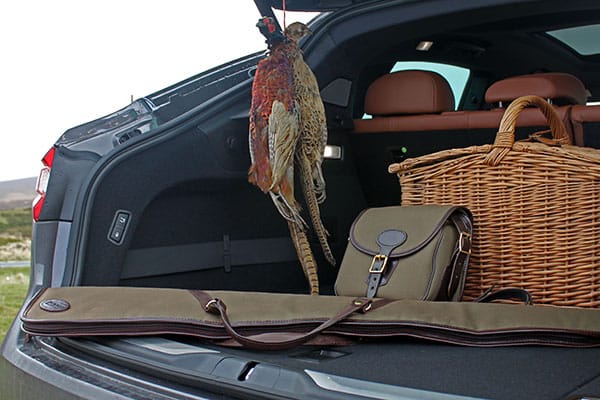
Spent and misfired cartridge disposal
According to guidance from the Environment Agency (EA), spent shotgun cartridges are classed as a ‘directive waste’.
Get information on the legal shooting season for mammals and birds in the UK.
Apply for funding for your project or make a donation today
Comprehensive information and advice from our specialist firearms team.
Everything you need to know about shotgun, rifle and airgun ammunition.
Find our up-to-date information, advice and links to government resources.
Everything you need to know on firearms law and licensing.
All the latest news and advice on general licences and how they affect you.


This guidance is about the approval of rifle, miniature rifle and muzzle-loading pistol clubs by the Home Secretary and the Scottish Government. It explains what approval means and how clubs can apply for it. It also explains the criteria and conditions which they must meet in order to obtain approval and remain approved and provides more detailed guidance on the important role and responsibilities of club liaison officers.
It supersedes all other government guidance on the subject.
Under section 44 of the Firearms (Amendment) Act 1997, a person wishing to possess a rifle or muzzle-loading pistol solely for target shooting must be a member of an approved rifle club or, as the case may be, approved muzzle-loading pistol club. Section 44(1)(b) requires an approved club to be specified on the firearm certificate. The certificate should not list all clubs of which the holder is a member.
Any rifle, miniature rifle or muzzle-loading pistol club can apply to the relevant authority (the Home Office for clubs in England and Wales or the Scottish Government for clubs in Scotland) for approval. Approval is granted under section 15(1) of the Firearms (Amendment) Act 1988 (as amended by section 45 of the Firearms (Amendment) Act 1997).
When approval has been granted, members of that club can possess firearms and ammunition without holding a personal firearm certificate “when engaged as a member of the club in connection with target shooting” (section 15(1) of the 1988 Act as amended by section 45 of the 1997 Act).
Approval also allows the police to grant a free firearm certificate to a responsible officer of the club to enable him or her to purchase and acquire firearms and ammunition for members to use for target shooting. Club members may not purchase or acquire firearms or ammunition unless they have been granted a personal firearm certificate by the police.
If you would like to vary, renew or apply for a Home Office shooting club approval letter, please apply online at: Section 5, shooting club and museum firearms licence applications.
Please be advised that all applications will be subject to fees. The fee charged will depend on the type of application made, for example whether it is an application for a club requiring Home Office approval for the first time or an existing club applying to renew or vary its approval.
For further details regarding the different types of application and the fees they will incur, see the Home Office circular on Firearms Fees Regulations 2019.
Clubs will not be granted approval unless they meet the criteria set out below. These criteria translate into conditions of the approval, if granted. Approved clubs which fail to meet these conditions can expect approval to be withdrawn.
The criteria as set out below should be observed:
the club is a genuine target shooting club with a written constitution (see note 2)
the principal officers of the club are responsible people who can be entrusted with the proper administration of the club (see notes 3 and 4)
the club has at least 10 members at the time of application and at all times whilst approved unless, exceptionally, the Secretary of State or Scottish Government determines that there are special circumstances which justify a lesser number
members are of good character (also see notes 3 and 4)
the club must appoint a member to act as a liaison officer with the police, and the chief officer of police must have confidence that this person is providing the police with such information as they require to ensure that the activities of the club and its members are conducted properly and safely in accordance with the criteria and give no cause for concern (see Annex A to this guidance and notes 1 and 5 below)
the club will maintain a register of the attendance of all members together with details for each visit of the firearms which they used (see note 6)
the club will inform the police of any person, other than a guest member, who has ceased to be a member for whatever reason (see notes 1 and 7)
the club will inform the police of any member, other than a guest member, who has not shot with the club for a period of 12 months (see notes 1 and 7)
the club will inform the police of any application for membership, giving the applicant’s full name and address, date and place of birth, and the date on which they become a full member (see notes 1 and 8)
no application for full or probationary membership will be granted unless the applicant has informed the club of whether he or she has ever had an application for a firearm or shotgun certificate refused by the police, or had a certificate revoked (see note 9)
members, prospective members and guest members must sign a declaration that they are not prohibited from possessing a firearm or ammunition by virtue of section 21 of the Firearms Act 1968 (which applies to persons who have served a term of imprisonment or been given a suspended sentence of 3 months or longer) (also see note 9)
the club has regular use of ranges for the categories of firearm in respect of which approval is being sought or given, as the case may be. Adequate financial arrangements must be in place to meet any injury or damage claim (see note 10)
the security arrangements for the storage of club firearms and ammunition are satisfactory (see notes 1 and 11)
the club does not run a day or temporary membership scheme, other than for guest members within the constraints of paragraphs O and P below (see note 12)
guest members must be: members of a recognised outside organisation; people who are known personally to at least one full member of the club; members of another approved club visiting as members of that club; or visitors possessing firearms that fall within the terms of the club’s approval and that are held on their personal Firearm Certificate or Visitor’s permit or Permit under section 7 of the 1968 Firearms Act (see note 13)
the club does not have more than 12 guest days a year – guest members, (other than members of another approved club or visitors with a firearm certificate, visitor’s permit or permit under section 7 of the 1968 Firearms Act as above,) may only shoot during a guest day, and must be supervised on a one-to-one basis at all times when handling firearms and ammunition by either a full club member or someone who is a coach recognised by the governing bodies; the club secretary must notify each guest day to the police firearms licensing department of the area in which the guest day is to take place at least 48 hours in advance (see notes 1 and 13)
anyone who applies for membership must be sponsored by at least one full club member
before becoming a full member, individuals must have a probationary period of at least 3 months during which time they must attend and shoot regularly; the probationary member must be given a course in the safe handling and use of firearms on a one-to-one basis by someone who is either a full member of the club or who is a coach with a qualification recognised by the governing bodies (see notes 14,15 and 16)
until a probationary member has satisfactorily completed a course in the safe handling and use of firearms, he/she must be supervised at all times when in possession of firearms or ammunition by either the range officer, a full member of the club, or someone who is a coach with a qualification recognised by the governing bodies (see notes 14 and 15)
the probationary period may be waived, at the club’s discretion, for someone who is already a full member of another club which has been approved by the Secretary of State or Scottish Government in respect of the same type or types of firearm; or holds a Firearm Certificate; or has handled firearms in the course of his/her duty in the police or the armed services, and has a statement from his/her existing or former senior/commanding officer saying that he/she is fully trained in handling the type of firearms in respect of which the club has obtained approval and is able to use them safely without supervision (see notes 14 and 17)
the club never has more probationary members than full members unless the Secretary of State determines that there are special circumstances which justify a greater number of probationary members (see note 18)
there is nothing else that would make the club unsuitable for approval.
If approval is granted, the approval will be subject to a set of standard conditions which will reflect the approval criteria listed above. In certain cases, the Secretary of State may attach further specific conditions to a club’s approval.
All notifications should be sent to the police firearms licensing department through whom approval was granted. There is no requirement to report guest membership under the procedures for guest day attendance.
The club must be a genuine rifle and/or muzzle-loading pistol club set up for the purpose of target shooting. The constitution of the club should implement the conditions of approval.
Club officers must be people who are not disqualified from possessing a firearm.
Club officers should be aware of firearms laws relevant to the membership of the club and make their best efforts to ensure that all members continue to be persons of good character. Police firearms licensing departments should not be asked to disclose whether or not someone has a criminal record. Prospective members should not be required to apply for a firearm or shotgun certificate as a means of determining ‘good character’. The police will not normally grant a certificate to somebody who is only a probationary member of a club.
The liaison officer should normally be a member of the club committee. He or she should establish contact with the local police firearms licensing officer and decide between them how information should be supplied and with what frequency. They should also set up a system so that the liaison officer can contact the firearms licensing officer as necessary and vice versa. See further guidance on the role and responsibilities of club liaison officers in Annex A.
An attendance register should be kept of all members. In the case of a firearm held on a member’s firearm certificate, the register will record the calibre, type and serial number of the firearm(s) used and the date. All visiting shooters should be logged in the same way. In the case of competition shoots between clubs, the responsibility for recording the attendance of a team member will lie with the club that the shooter represents. In the case of open competitions, the organising club will record details of competitors. Clubs should retain their attendance records for a minimum of 6 years.
Notifying the police when a person’s membership has ceased, or as soon as such a person has not shot with the club for a period of 12 months, will allow the chief officer of police to check in the case of certificate holders whether that individual is still using his or her firearm(s) regularly at another club or approved range. The police should be informed within 1 month of cessation of membership.
Casual membership enquiries need not be reported – only those which reach the stage of a formal application. The police should be advised when an application is submitted formally to the club.
Whether a prospective member has ever had an application for a firearm or shotgun certificate refused, or had a certificate revoked, should form the basis of a question on the club’s membership application form. There are many reasons for refusal/revocation and not all will count against an individual. Clubs will therefore need to ascertain why the certificate was refused/revoked in order to make an informed decision.
There are three categories of approval: full-bore rifle, small-bore rifle and muzzle-loading pistol. Rifles chambered for pistol ammunition above .22 rim-fire calibre are regarded as full-bore rifles. Clubs seeking approval in order to use such rifles will therefore need access to a suitable range with adequate financial arrangements in place to meet any injury or damage claim. The National Associations are able to provide advice on the construction and use of ranges.
The security arrangements for storing firearms must be satisfactory to the local chief officer of police acting through the force firearms licensing department.
The ban on day or temporary membership is to stop casual shooters being able to come in off the street and shoot. It should not be confused with properly organised guest days, competition shoots between clubs or events open to individuals who are not members of that club. An organised and notified guest day is required only for guest members who are neither members of another approved club nor firearm certificate holders, visitor’s permit holders or holders of permits issued under section 7 of the 1968 Firearms Act.
Examples of recognised outside organisations whose members may be guest members of approved rifle and muzzle-loading pistol clubs are scouts and guides, schools, rotary clubs and Women’s Institutes. The duty to notify the police of guest days is laid on the club secretary. This may be delegated to the appointed liaison officer.
A probationary period of 3 months is a minimum. It is open to clubs to set a longer probationary period should they wish, or to extend the probationary period for an individual if they deem this necessary. The club may end a probationer’s membership at any time.
Recognised coaching qualifications for the purposes of the Home Office and Scottish Government criteria for approved clubs are:
The national associations are able to give advice on safety training courses for probationary members.
Although the probationary period may be waived in certain cases, the individual concerned has no right to insist on this. It is for the club to decide whether or not the probationary period should be waived for specific persons.
The Secretary of State or Scottish Government may, in exceptional circumstances, allow a club to have more probationary members than full members. This may be appropriate, for example, in a university club at the beginning of the academic year.
Clubs can have non-shooting categories of membership such as associate, family, social or honorary. Such members are not covered by section 15 of the Firearms (Amendment) Act 1988 (as amended) and must not have access to firearms and ammunition except as participants in a guest day.
The approval will only cover target shooting with the type or types of firearm listed in the approval. There are three possible categories:
Rifles chambered for pistol ammunition above .22 rim-fire calibre are regarded as full-bore rifles.
The decision about which categories will be listed in the approval will mainly depend on whether suitable ranges are available.
Variation in the terms of the criteria for approval
It is possible that, exceptionally, the Home Secretary or the Scottish Government may allow some variation of the criteria, or the conditions of approval. He/she must be satisfied that it would be reasonable to do so in the exceptional circumstances which come to his notice.
Extending or renewing club approval
Please see the section How to apply for approval.
Cadet corps and school clubs
The Secretary of State or Scottish Government approves cadet corps for the possession of firearms and ammunition under section 54(5)(b) of the Firearms Act 1968 (as amended by section 28 of the Armed Forces Act 1996). The information contained in this leaflet does not apply to cadet corps, nor does it apply to school rifle clubs. For further information contact the Home Office or the Scottish Government at the addresses given earlier.
Miniature rifle ranges and shooting galleries
A person operating a miniature rifle range or shooting gallery at which either miniature rifles not exceeding .23” calibre or air weapons are used may possess, purchase or acquire such miniature rifles and their ammunition without holding a firearm certificate. This will not be the case when the provisions of the Firearms Act 2023 are commenced and make it a requirement for the operator of a miniature rifle range to have a firearm certificate and limits the rifles for use on a MRR to .22 rimfire rifles. Anyone may use these rifles and ammunition at a range or gallery of this type without a firearm certificate. No club approval is necessary.
Further advice
If you would like further advice on any of the information in this leaflet, please contact the Home Office, the Scottish Government, your local police firearms licensing department or the organisations listed below.
Addresses of national shooting organisations
The British Shooting Sports Council, PO Box 79, Halesworth, IP19 1BB
The National Rifle Association, Bisley Camp, Brookwood, Woking, Surrey, GU24 0PB
The National Smallbore Rifle Association, Lord Roberts Centre, Bisley Camp, Brookwood, Woking, Surrey, GU24 0NP
The person
The club liaison officer:
Responsibilities
It is the responsibility of the club liaison officer to:
Notes
1. Information required by the police from the club liaison officer includes:
For new probationary members
For new full members
Club members who have not shot there within the last 12 months
Members who cancel or fail to renew membership
Club guest days
2. It is important to have trust between the club liaison officer and the local police firearms licensing department achieved through regular meetings. In some circumstances it may be necessary to meet very frequently, but much will depend on the size of the club and the nature of the activities undertaken by it. The liaison officer and the local police should, therefore, agree between themselves how information is to be supplied and with what frequency and how often they should meet, but this must not be less than once each year.
3. Behaviour that might give rise to wellbeing concerns might include, but is not restricted to:
Got a question? Email us on firearms@basc.org.uk or call 01244 573 010.
Updated August 2024

According to guidance from the Environment Agency (EA), spent shotgun cartridges are classed as a ‘directive waste’.

It is estimated there are more than 1.5 million shotguns held legally in Britain and this code of practice will ensure a safe and responsible future for the sport.

Tim Ryan of Warners solicitors explores the subject of guns in vehicles and the police’s stop and search procedure.
Sign up to our weekly newsletter and get all the latest updates straight to your inbox.
© 2025 British Association for Shooting and Conservation. Registered Office: Marford Mill, Rossett, Wrexham, LL12 0HL – Registered Society No: 28488R. BASC is a trading name of the British Association for Shooting and Conservation Limited which is authorised and regulated by the Financial Conduct Authority (FCA) under firm reference number 311937.
BASC Direct Ltd is an Introducer Appointed Representative of Agria Pet Insurance Ltd who administer the insurance and is authorised and regulated by the Financial Conduct Authority, Financial Services Register Number 496160. Agria Pet Insurance is registered and incorporated in England and Wales with registered number 04258783. Registered office: First Floor, Blue Leanie, Walton Street, Aylesbury, Buckinghamshire, HP21 7QW. Agria insurance policies are underwritten by Agria Försäkring.
If you have any questions or complaints about your BASC membership insurance cover, please email us. More information about resolving complaints can be found on the FCA website or on the EU ODR platform.